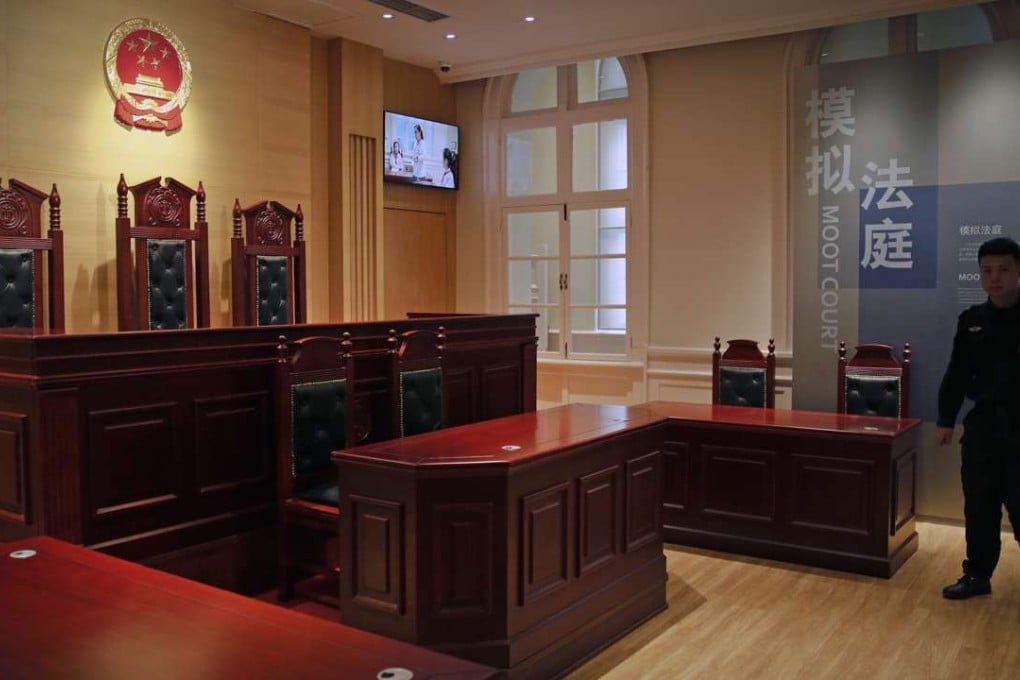Chinese courts must encourage witness cross-examination to ensure a fairer trial
Grenville Cross says if China is serious about reforming its criminal justice system, the low court attendance by witnesses and the practice favouring written statements must change

“Cross-examination”, said jurist John Henry Wigmore, “is the greatest legal engine ever invented for the discovery of truth.” In Hong Kong, advocates in criminal trials invariably cross-examine the witnesses called by the other side, either to strengthen their case or to weaken their opponent’s, and this is a feature of both civil and common law jurisdictions.
Although the right to cross-examine can be waived, as where a witness’ evidence is uncontroversial, the questioning of testimony plays a vital role in providing judges and juries with the information they require to reach a correct decision. If a witness is unavailable for cross-examination, his or her primary evidence will usually be excluded altogether.
Whereas cross-examination, which is the essence of trial advocacy, is an art, it is also a skill, requiring preparation, research and practice. When properly deployed, it can protect innocent people from wrongful convictions, and expose falsehoods. In a criminal trial, the ability of a lawyer to cross-examine effectively can have a decisive impact on the outcome, which may explain the popularity these days of advocacy institutes, seeking to instil the necessary techniques in would-be trial lawyers.
Bo Xilai’s trial underlines need for cross-examination in court
In mainland China, however, witness attendance at court is, historically, very low, particularly in criminal cases. The Supreme People’s Court research office has, for example, disclosed that, while Tianjin’s ( 天津 ) Hebei District People’s Court adjudicated 352 criminal cases in 2011, witnesses testified in only 1.1 per cent of the cases. Moreover, although 11 witnesses were subpoenaed by judges to attend court, only four actually testified.
In a criminal trial, the ability of a lawyer to cross-examine effectively can have a decisive impact on the outcome
Quite apart from the traditional reluctance of mainland witnesses to get involved in court cases, China’s judges have always preferred to rely on written statements and other documentary evidence, usually submitted by the prosecution. Both judges and prosecutors appear to regard written testimony as more reliable than live witness evidence. This, however, may be changing, albeit gradually.
In 2012, China’s Criminal Procedure Law was amended to make the legal system more adversarial in nature. Article 59 states that the evidence of witnesses should be examined at trial before being admitted, although there is, unfortunately, no specific reference to cross-examination or to an accused person’s right to confront his or her accuser.
Article 187 also provides for witnesses to appear physically in court, including the use of subpoenas to compel their attendance. But, before ordering a witness to appear, a judge must first be satisfied that the proposed evidence is in dispute and will have a significant impact on the case. However, even if witnesses are required to attend court, Article 190 stipulates that, in their absence, their written statements can still be read out in front of the judge.
Prosecutors, paradoxically, even when their witnesses do attend court, often choose not to place them in the witness box, preferring instead to read out their statements. As written evidence is not tested by cross-examination, its admission continues to cast a shadow over the legitimacy of criminal proceedings.